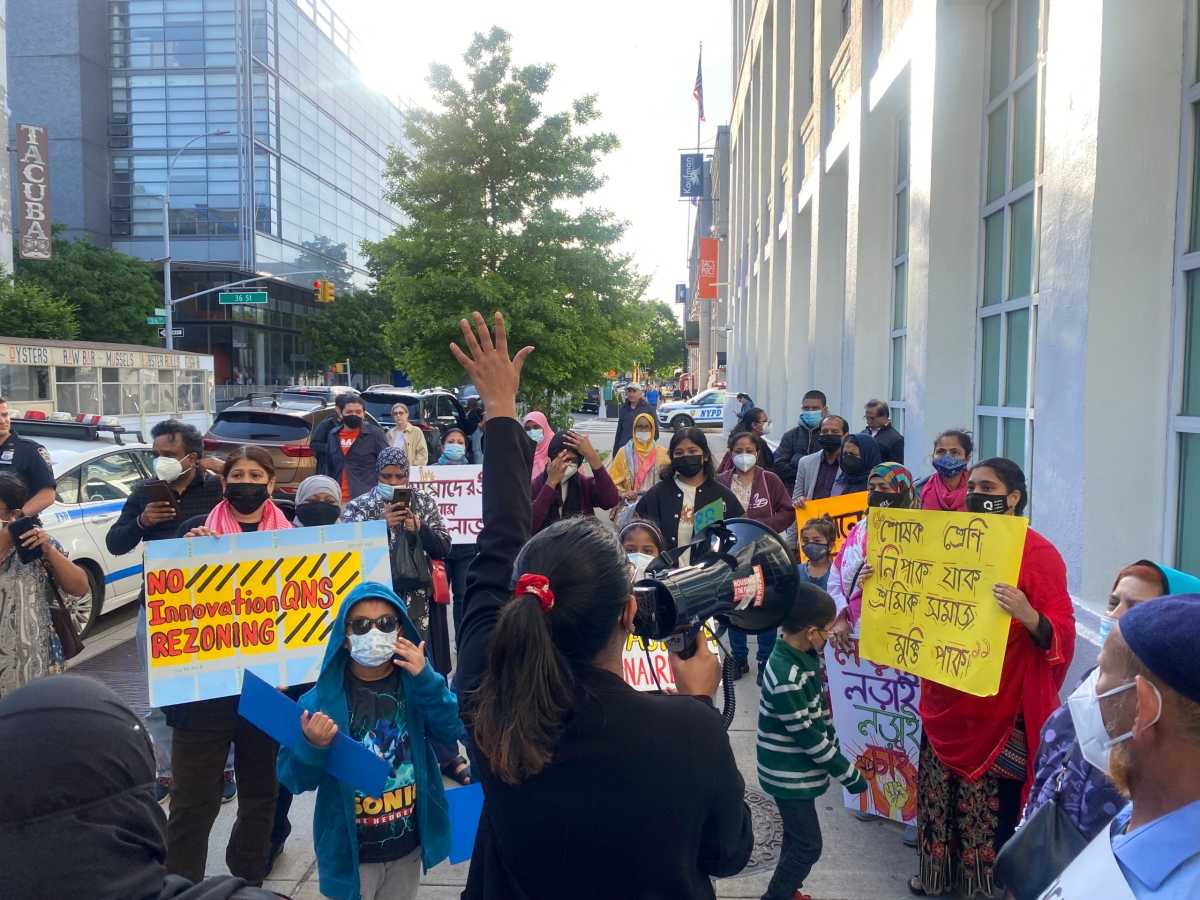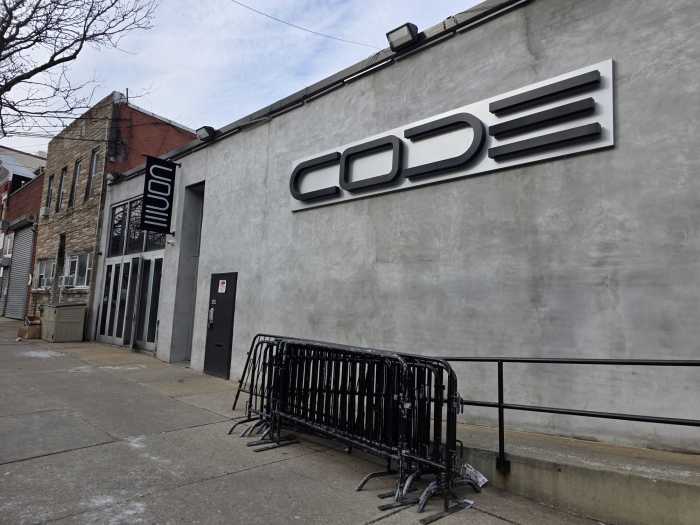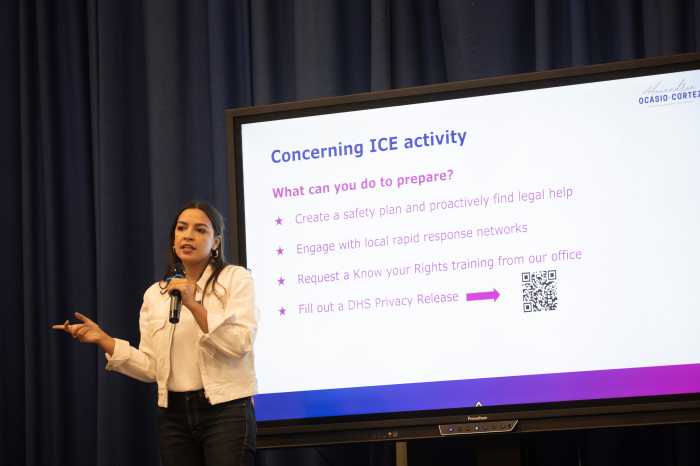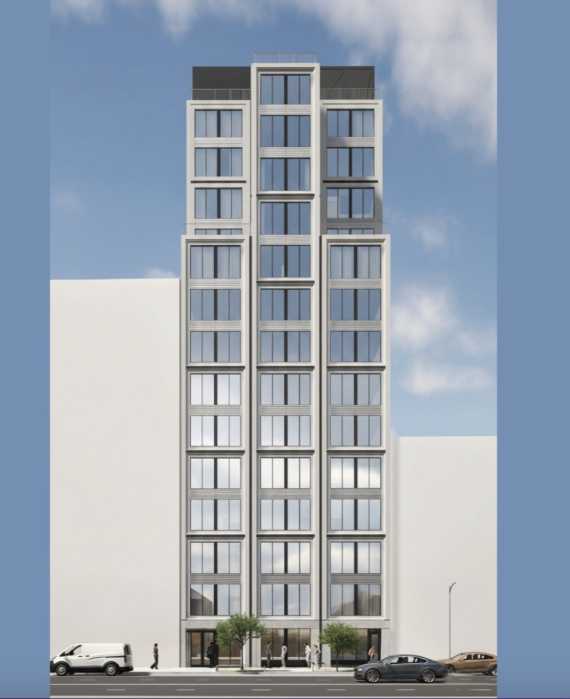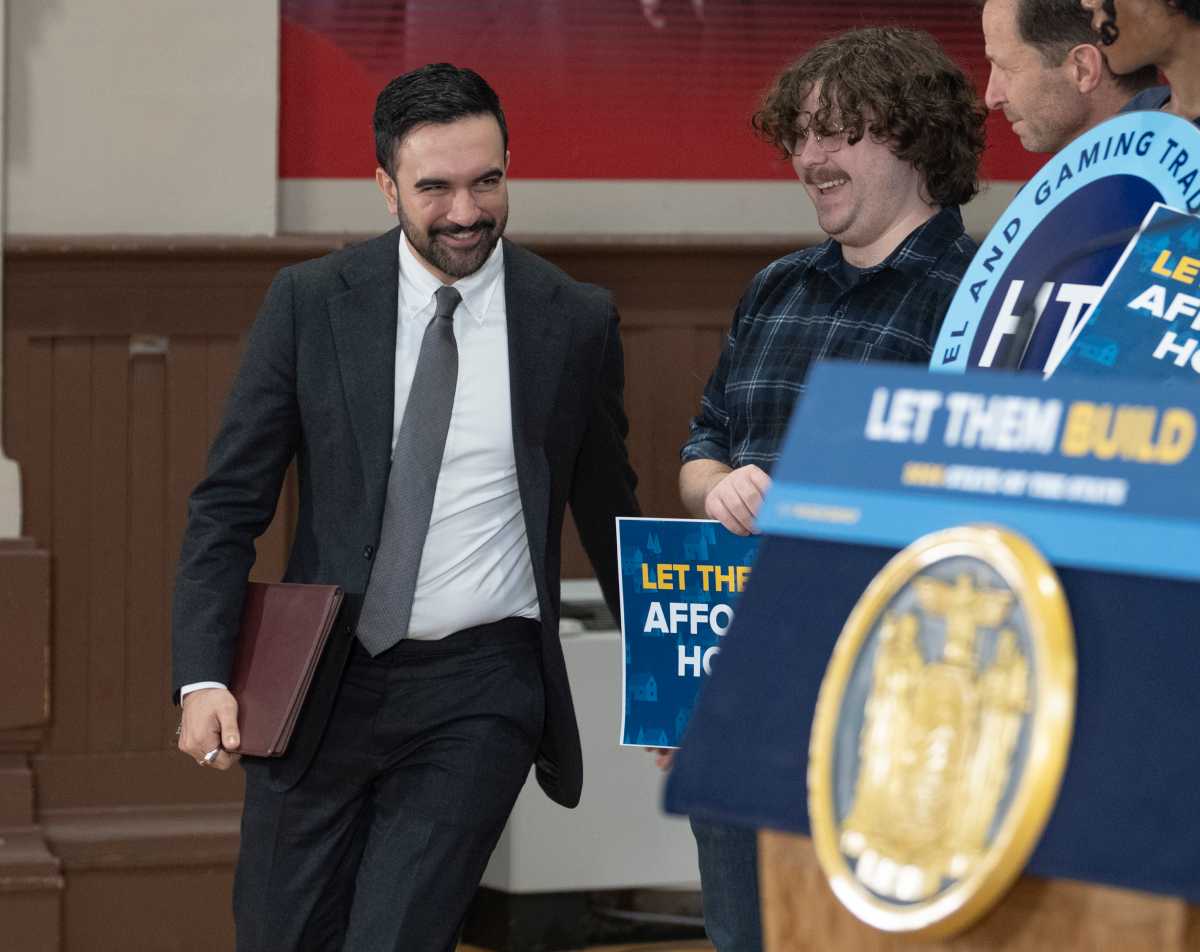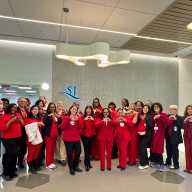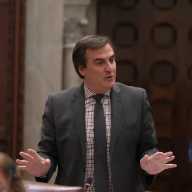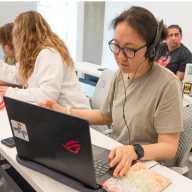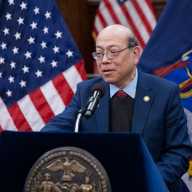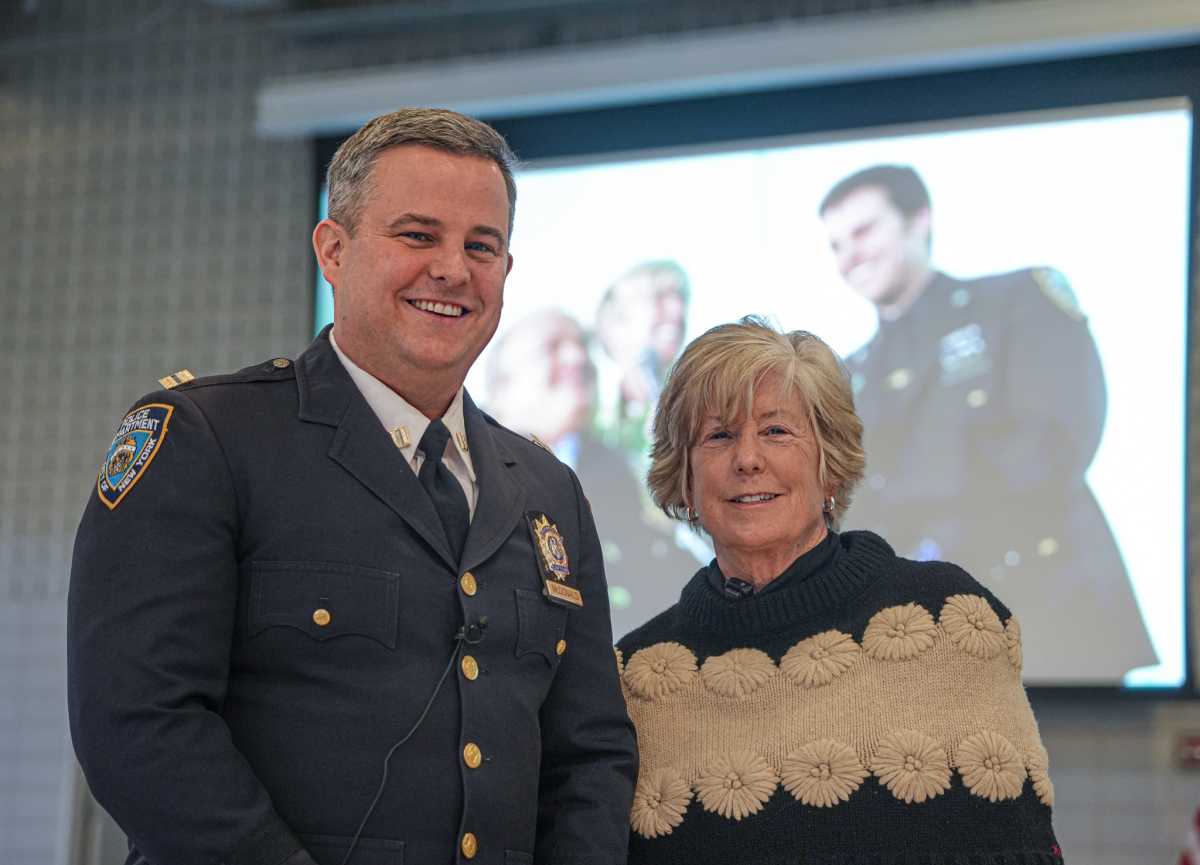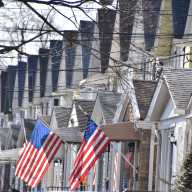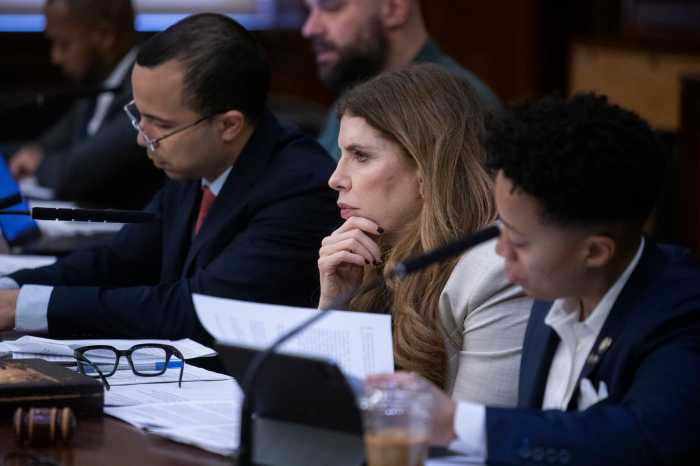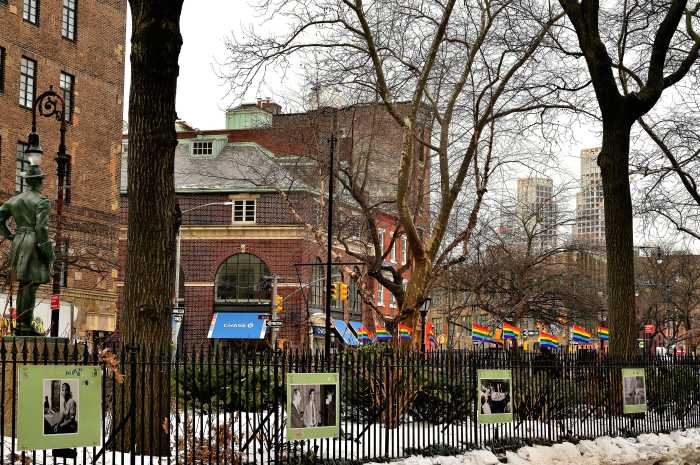Furious Astoria residents shouted at developers presenting their $2 billion project, Innovation QNS, during a highly tumultuous community board meeting Wednesday, May 25, at the Museum of the Moving Image.
Community Board 1 held its first meeting for Innovation QNS Wednesday night after the Department of City Planning certified the project application last month, kicking off a series of public hearings as part of the Uniform Land Use Review Procedure (ULURP) process.
The proposal would add a series of 12 buildings centered on five blocks around the intersection of Steinway Street and 35th Avenue. The development consists of 12 buildings, with eight standing at over 15 floors and the two largest at 27 floors.
Innovation QNS — led by Silverstein Properties, BedRock and Kaufman Astoria Studios — will bring 725 permanently affordable apartments, leaving 2,120 units set at market rate, according to the developers. Affordable housing for studios starts at $715 a month and two-bedrooms start at $1,071.
Dozens of locals gathered at the Museum of the Moving Image to tell their community board members to vote against this proposal, arguing it would gentrify an area where the cost of living is already rising. Many protesters were immigrants, specifically Bengali families who are a part of CAAAV: Organizing Asian Communities.
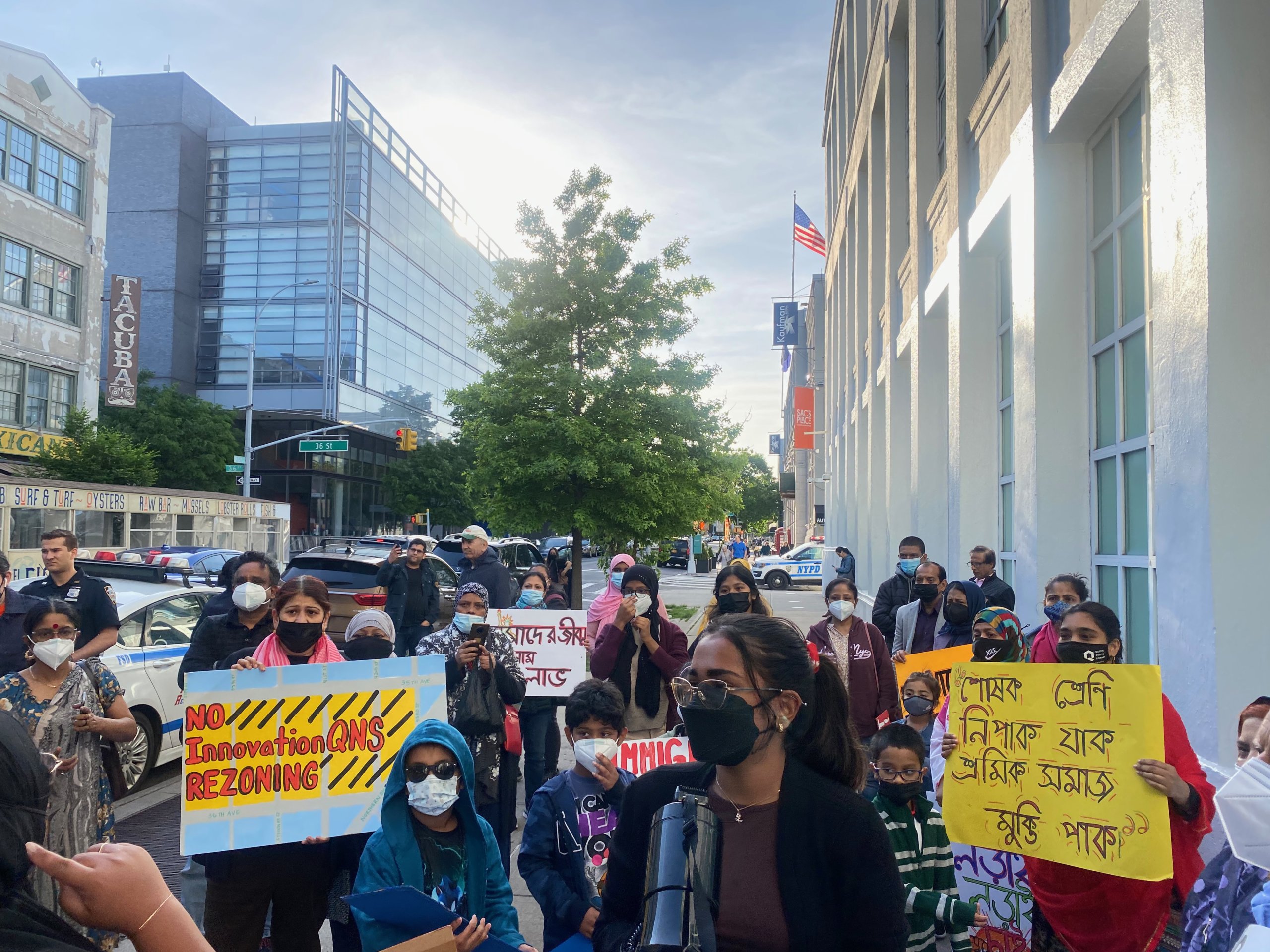
A representative of a local activist group, Astoria Not for Sale, begged the community board to vote “no” and recommend the city not allow the development to move forward.
“By voting ‘no’ to Innovation QNS, you’ll communicate that we do not need luxury housing, we do not need extreme high-rises, and we do not need developers who don’t show basic respect and consideration of the residents and small businesses, especially those who will be displaced directly or through the ripple effect that luxury rental pricing always has on neighborhoods,” the activist said.
Though there was a big show of opposition, the room was seemingly split between supporters and protesters, making the night extremely contentious.
Developers adamantly defended their proposal, as they believe it’s necessary to add to this particular area of Astoria, which they argue is diverse and full of culture, yet largely desolate. Innovation QNS would bring vibrant, public, mixed-use space to the community, according to developers.
A longtime resident of Astoria Houses and former Resident Association President Claudia Coger said that she is in full support of the project for the jobs and growth it would bring to the area.
“I’ve lived in Astoria for 68 years,” Coger said. “What I see in this project is that it’s going to open Astoria to all of the people. I believe it’s going to support everything we need here. As a city, we’re growing and we have to be able to understand that. We must open our minds to growth here in Astoria.”
Coger also mentioned that the public and commercial spaces would bring entertainment to the “youth who’s on the street right now, dying because they have no leadership.”
Community Board 1 member and co-chair of the Land Use and Zoning Committee, Gerald Caliendo, commented that while the board has historically supported new developments in Astoria, they oppose Innovation QNS.
“When we see that a project is detrimental we will vote against it,” Caliendo said. “The sub-committee generally agreed that the project is somewhat detrimental to the community.”
Caliendo said that the large-scale development does not respect the “character of both the adjoining residential blocks.” The committee co-chair said the board also took issue with the fact that developers are posing the green spaces as open to the public when they are for commercial use.
“The developers should provide more active recreation space, such as small soccer fields and basketball courts,” Caliendo said. “Those spaces should be used as a YMCA, Variety Boys & Girls, that would be more beneficial to the community immediately adjacent to the area.”
Lastly, the Caliendo said that the proposed 10,000 square feet of retail space were “excessive.” The sub-committee disapproved of the application, but the board as a whole has yet to vote on the matter.
This portion of the ULURP process gives the community board about 60 days to vote and submit a recommendation to the city. After that, the City Planning Commission will make the final decision after recommendations from the Community Board and borough president.
The next public workshops will be held Saturday, June 11, from noon to 2 p.m. at the Melrose Ballroom on 36-08 33rd St. and Tuesday, June 14, from 6 to 8 p.m. virtually.

